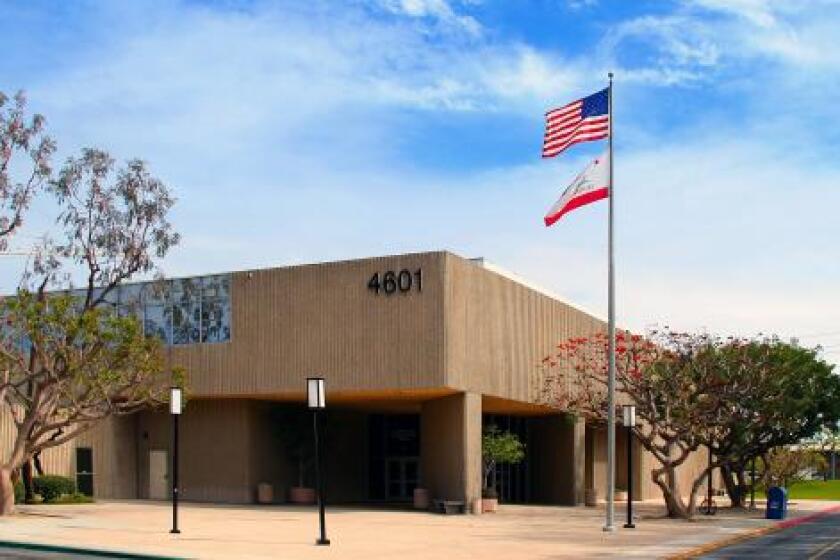‘She planted 30 million trees’
- Share via
CATHARINE COOPER
I read the news aloud to anyone who will listen, “She planted 30
million trees, and she won the Nobel Peace Prize.”
Wangari Mathaai and the organization she founded, the Green Belt
Movement (GBM), planted 30 million trees in Kenya during the last 30
years. For this accomplishment, along with myriad others, including
the advocacy of women’s rights, broad based educational initiatives,
development of the tool of reforestation as a vehicle to stave off
tribal warfare, and an expansion of the foundation of democracy,
Mathaai was awarded the 2004 Nobel Peace Prize.
There was a level of backlash in the global community that the
Prize was awarded to an environmentalist. The expected recipient had
been the Atomic Energy Commission, and its attempts to stem nuclear
proliferation. There was additional harangue that during a war year,
what use was an environmental acknowledgement?
Yet a review of the foundation of the Prize itself reveals that
“the ways and means to achieve peace are as diverse as the
individuals and organizations rewarded.” Along with humanitarian work
and peace movements, the Prize has been awarded to a wide field of
work including the advocacy of human rights, mediation of
international conflicts and arms control, and disarmament. Henry
Dunat, founder of the Red Cross, and Frederic Passy, the leading
international pacifist of the time, shared the first Prize, given in
1901. The 1970 recipient, Norman E. Borlaug, recognized for his work
in food production and hunger alleviation, suggested in his
acceptance speech, that had hunger been an issue before Dr. Nobel’s
death, there would have been an award granted for its resource
development.
Surely the acknowledg- ment of Mathaai and GBM are equally a
tribute to the earth. In her acceptance speech, given in Nairobi on
Oct. 9, Mathaai expressed her thanks for what she termed an
“unparalleled honor” and continued to say, “By making this award, the
Nobel Committee has placed the critical issues of environmental
conservation, democratic governance and community empowerment and
peace before the eyes of the world. Some people have asked what the
relationship is between peace and environment, and to them I say that
many wars are fought over resources, which are becoming increasingly
scarce across the earth. If we did a better job of managing our
resources, conflicts over them would be reduced. So, protecting the
global environment is directly related to securing peace.”
The planting of the trees themselves stands as an act of our
salvation. Records show that during the 1980s, 530,00 acres of
tropical forests were destroyed. Of those, 21,000 square miles were
deforested each year in the Amazon Basin -- the size of the state of
North Carolina. Obviously, we need significantly greater planting
efforts if we are to regain the green covering that provides us with,
among other things, the essential building block of our existence:
oxygen. Deforestation, which releases vast quantities of CO2 into the
atmosphere, has been shown to have a direct link to the growing
global warming crisis
To bring that point home, a news release this week shows a
troubling spike -- a rise of more than two parts per million -- in
the CO2 content of our atmosphere to 375.64 ppm, measured over the
past two years. The level was recorded at the summit of Mauna Loa in
Hawaii where data has been collected since 1958. Previous rises of
similar magnitude occurred in 1973, 1988, 1994 and 1998, but each was
accompanied by an El Nino climatic season. This has not been the case
for the last two years. One possible explanation is a “weakening of
the earth’s carbon ‘sinks’ [oceans and forests],” associated with
global warming, as a kind of climate feedback mechanism.
The recognition that the Nobel Peace Prize has granted to Wangari
Mathaai and the efforts of GBM to spread their message of nurturing
environmental sustainability is well timed and deserved. Too often,
we take this gracious planet for granted, mesmerized by her bounteous
gifts of fresh air, forests, meadows, rivers, lakes and oceans. We
must recognize our roll in her conservation, and continually seek out
and support ways in which we can be better earth stewards. Head for
the nursery. Plant a tree.
* CATHARINE COOPER loves and supports wild places. She can be
reached at [email protected].
All the latest on Orange County from Orange County.
Get our free TimesOC newsletter.
You may occasionally receive promotional content from the Daily Pilot.



